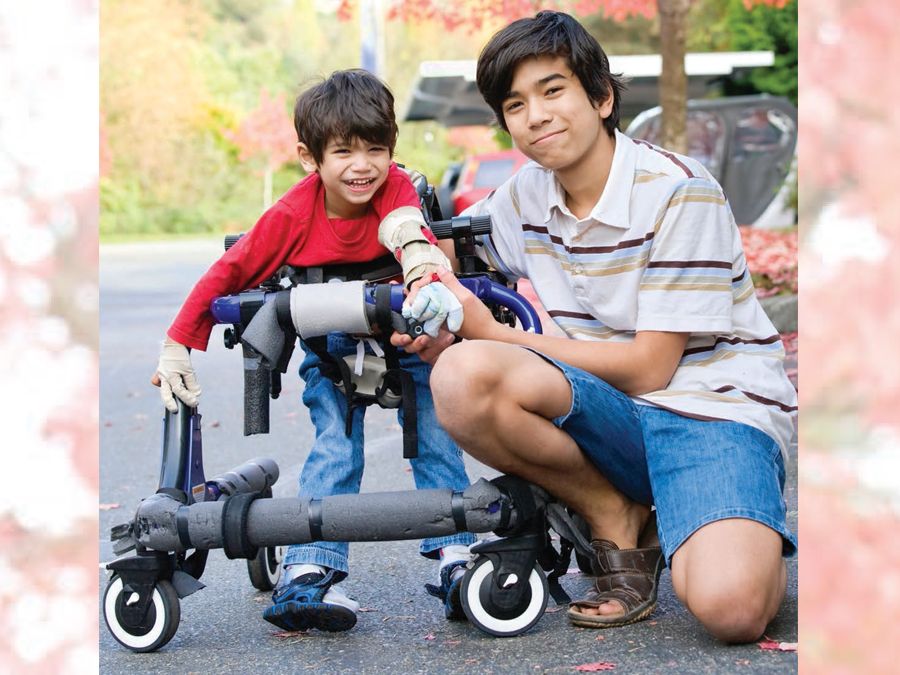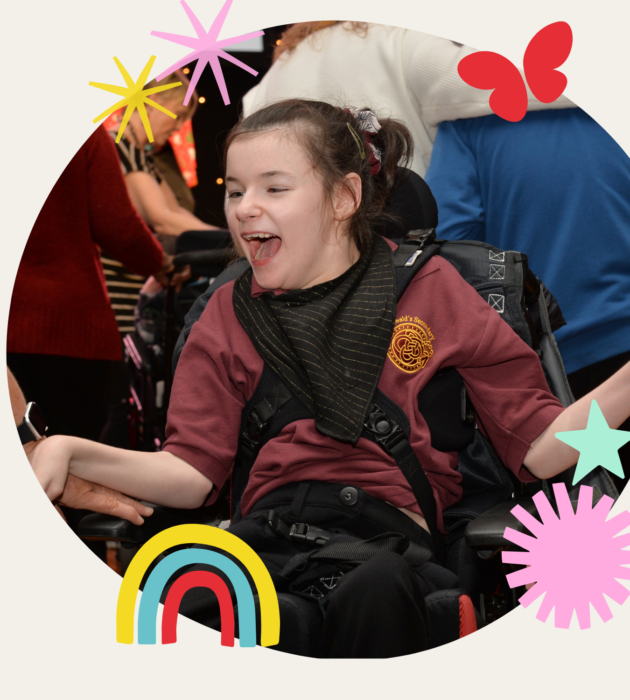Children With Disabilities Have a Sporting Future Too

In 2015, the UK government published “Sporting Future – A New Strategy for an Active Nation”1 to, in their words “tackle head on the flat lining levels of sport participation and high levels of inactivity in this country”.
Recognising the vital role that sport at any level can play, they identified five key outcomes as hallmarks of the strategy; physical wellbeing, mental wellbeing, individual development, social & community development and economic development. Drawing on research from Sport England2 the strategy recognises the importance of providing positive sporting experiences for children, in order to encourage a lifetime of participation. At the same time the strategy acknowledges that “negative experience may narrow perceptions of sport and put someone off forever [which is] why we need to ensure that the sport and physical activity ‘offer’ is right for children and young people…particularly…for under-represented groups, such … disabled children, where dropout rates in childhood are high.” This won’t be news for those caring for and enabling disabled children. Over 70% of those schools and voluntary sector groups who expressed an opinion in our research identified a lack of participation in sport amongst disabled children as a significant contributing factor to social isolation, lack of confidence or a reduction in their life experiences.
We know first-hand that there are schools and children’s organisations all over the UK doing fantastic work to ensure that disabled children have the same opportunities to take part in sport as their non-disabled ounterparts. Yet, as our research reveals, it is much harder for children living with long term illness and disability to participate in sports both informally with their friends and formally through organised activity.
There are an estimated 770,000 children in the UK living with a disability3. Half of the parents we surveyed said their child is not comfortable taking part in sports with only 9% saying that their child takes part in sports at a specialist sports club. Over a third of parents also reported that their child had experienced negative social attitudes to their health problem or disability, in relation to sport. This stigma has got to stop.
Further, 69% of schools and voluntary sector groups identified the biggest barrier to children with disabilities accessing sports was the costs involved in travel, equipment, coaching and membership fees. Crucially, 82% of schools and children’s groups specifically reported that the availability of appropriate facilities or equipment was the critical barrier to participation.
Here at Variety, we’ve been helping children and young people with disabilities and chronic medical conditions for almost 70 years. Since our wheelchair programme started in 1988 we have provided over 4000 wheelchairs, stepping in when the NHS is unable to fund the specialist wheelchairs that enable children to better access a wider range of recreational activities.
Children and young people who rely on wheelchairs for mobility are at greater risk to health conditions that stem from a more sedentary lifestyle. These include lower levels of cardio-respiratory fitness, reduced muscle tone and obesity. From sports to electric wheelchairs, it’s important to us that every child gets the equipment they need to develop a healthy lifestyle and participate in a way that make them feel most comfortable. Many of our beneficiaries go on to take part in competitive sport at club, county, national and international level, including at the London and Rio Paralympics. Many more though are unable to play a sport they enjoy regularly for pleasure without fear of stigma or exclusion.
While there are opportunities for children to engage in adapted sports around the country, only 1 in 2 schools offer some form of extra-curricular provision for adapted sports. This is still half that which is provided for non-disabled children.
A lack of equipment, facilities and coaching is only part of the problem. Schools, voluntary organisations and families all told us that, transport is also a challenge. Our flagship Variety Sunshine Coach programme, the largest of its type in the UK, has been tackling this problem since 1962. This year, Variety will be putting our 5500th coach on the road. In use day in and day out, these coaches ensure that disabled children up and down the country have the opportunity to access the leisure, recreational and sporting opportunities they enjoy.
The scale of the problem before us is huge. That disabled children have to deal with social isolation and stigma on top of the challenges they already face is unfair. When this is compounded by a lack of facilities, equipment, accessible transport and professionals skilled in provided specialist coaching it can all too often feel like an impossible situation.
It is clear to us that there is much to be done to ensure equal access to sport for all children. Our vision is for every child to have access to an inclusive sports programme which supports their physical wellbeing, improves their self-esteem, enables social acceptance and a sense of achievement, fosters self-confidence and leads to a greater sense of independence. That’s why, over the next year Variety will be launching a consultation on this issue. We want to bring politicians, professionals and other interested parties together with the families of disabled children so that, we can work towards a set of recommendations and solutions. Together we can ensure a level playing field for all.
Sources:
- 1Sporting Future – A New Strategy for an Active Nation (2015)
- 2How to Develop a Sporting Habit for Life (2012)
- 3Disability Living Foundation (2014)
Transform a child’s life
Donate now